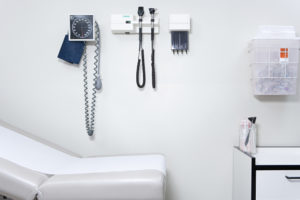How the internet can help (and hurt) your health care
It’s flu and cold season and everyone is afraid of catching whatever bug is going around. Got a sniffle? A head ache? Maybe both? Do you impulsively type those symptoms into Google or WebMD or whatever your online medical go-to is?
You are not alone. According to a recent report from the Pew Research Center, 35% of Americans have used online search engines to self-diagnose themselves. The report also stated that only half of those people followed up their online search by actually visiting the appropriate medical professional!
Unfortunately the study doesn’t report on Canadian statistics. So we can’t tell if Canadians are more likely to see a doctor because we have free medical care.
However Canadians are not immune to using “Dr. Google”. Statistics Canada states that 64% of Canadian internet users searched the internet for “medical or health-related information.”
Great Resource
There are certainly benefits to using the internet as a health resource. For example, finding out about food recalls for e-coli would be something that the instantaneousness of the internet would facilitate.
The fact that the internet is (practically) free, convenient and widely available makes it useful for finding information about less serious or urgent issues; advice about losing weight for example.
Use with Caution
There are certain risks to using the internet to replace a visit to health care professionals.
This Canadian Nursing Website chronicles some of the problems with using the internet to self-diagnose.
Accuracy Difficult to Determine
The problem of course is that the internet is unregulated and sometimes it is difficult to determine the legitimacy of the information you find while searching for an answer. Anyone can post anything they want on a forum (or Wikipedia) and there is no way to know whether their post is reliable.
Even entire websites are becoming increasingly easy to create, and cheap or free to host, so there are any number of questions surrounding the legitimacy of supposedly professional medical websites. It is important for you to be careful in using the internet to treat health problems otherwise you may end up wrongfully diagnosing yourself and subjecting yourself to greater harm.
Proper Diagnosis Requires Training
Another issue is that the process of matching symptoms to the actual health problem can be inaccurate if you are not properly trained. There are a number of different health problems that can result in the same set of symptoms.
Doctors go to medical school for years to learn the subtleties and intricacies of accurately diagnosing illnesses. Something it is impossible to learn with a few clicks of a mouse.
Here in Nova Scotia we have a fantastic health resource called Health Link. By dialing 811 anywhere in Nova Scotia we can speak to a registered nurse about non-emergency heakth issues.
Adds to Stress
Finally, your online searching may actually lead to greater stress and worrying yourself unnecessarily.
A study slated to appear in the February 2013 issue of the Journal of Consumer Research shows that when individuals are diagnosing themselves they are much quicker to think of the worst-case-scenario than when they are diagnosing someone else.
One of the researchers, Dengfeng Yan, explains:
“We explain these effects using the concept of psychological distance. Consumers often fear the worst when it comes to their own health, while maintaining a calm objectivity with regard to others.”
In other words, the worst person to ask for a diagnosis about your illness may be yourself!
Education Resources
It may seem simple, but the message bears repeating; if you have a question about your health care, ask your doctor. Simply put, there is no substitute for a proper examination by a qualified doctor or other health care professional.
But we recognize that people are looking for solid trustworthy information to help answer their questions.
That is one of the reasons we published our series of Public Legal Education Guides including “Health Scare: The Consumer’s Guide to Medical Malpractice Claims in Canada”.
For more information please take a look at our library of Free Public Legal Education Resources.










Comments for this article are closed.